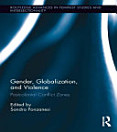Doing Digital Migration Studies: Theories and Practices of the Everyday
About this ebook
About the author
Koen Leurs is Associate Professor of Gender, Media and Migration Studies at the Graduate Gender Programme of the Department of Media and Culture at Utrecht University, the Netherlands. Leurs was the principal investigator of the Team Science project Co-Designing a Fair Digital Asylum System, funded by the Universities of the Netherlands Digital Society program and COMMIT, a public-private ICT research community (2022–2023). He chairs the Utrecht University-wide Digital Migration Special Interest Group, part of the Governing the Digital Society focus area. He previously co-edited The Sage Handbook of Media and Migration (Sage, 2020) and the special issues (Im)mobile Entanglements (International Journal of Cultural Studies, 2023) and Inclusive Media Education for Diverse Societies (Media & Communication, 2022). His latest book is Digital Migration (Sage, 2023). For more information, see https://www.uu.nl/staff/KHALeurs. Sandra Ponzanesi is Professor of Media, Gender and Postcolonial Studies at the Department of Media and Culture Studies, Utrecht University, Netherlands. She has published widely in the fields of media, postcolonial studies, digital migration and postcolonial cinema with a particular focus on postcolonial Europe from comparative and interdisciplinary perspectives. She is currently PI of the NWO Project VREM “Virtual Reality as Empathy Machine: Media, Migration and the Humanitarian Predicament”. Among her publications are: Paradoxes of Postcolonial Culture (Suny, 2004), The Postcolonial Cultural Industry (Palgrave, 2014) and Gender, Globalisation and Violence (Routledge, 2014). She has co-edited among other Postcolonial Cinema Studies (Routledge, 2012), Postcolonial Transitions in Europe (Rowman and Littlefield, 2016), Postcolonial Intellectuals in Europe (Rowman and Littlefield, 2018) and Postcolonial Publics: Art and Citizen Media in Europe (Edizioni Ca’ Foscari, 2023). More info: https://www.uu.nl/staff/SPonzanesi







